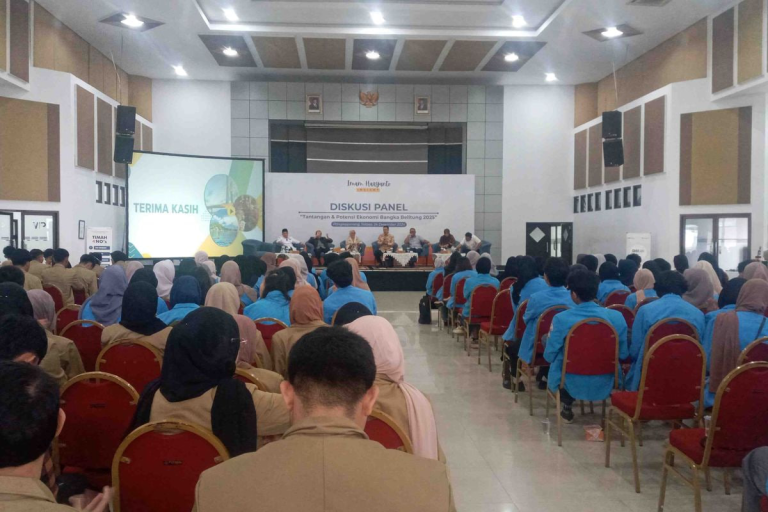

The Indonesian Democratic Party of Struggle (PDIP) has once again made headlines with a surprising public apology. In a rare admission, PDIP has expressed regret for its pivotal role in introducing Joko Widodo (Jokowi) to the political scene, a move that catapulted the now-president into the highest office in the land. This apology comes amid mounting criticism of Jokowi’s presidency and its divergence from the expectations that PDIP once had for his leadership.
In a statement released earlier this week, PDIP, Indonesia’s largest political party, acknowledged that while Jokowi’s rise was once seen as a transformative moment for the country, the party now feels disillusioned by some of the president’s recent decisions. This apology has sparked a wave of reactions from both political observers and the general public, shedding light on the evolving and increasingly complex political landscape of Indonesia.
A Promising Beginning: Jokowi’s Rise Through PDIP
Joko Widodo, known popularly as Jokowi, was introduced to the national political stage in 2012 when he became the Governor of Jakarta. At the time, his leadership style was seen as refreshing—marked by his focus on transparency, pragmatic governance, and a connection to the people. In 2014, with the backing of PDIP, Jokowi took a historic leap into the presidential race. His candidacy was hailed as a move to bring about a new era in Indonesian politics, one that would prioritize the welfare of ordinary citizens.
PDIP, under the leadership of Megawati Soekarnoputri, saw Jokowi as the perfect candidate to represent the party’s core ideals—strong leadership, pro-people policies, and a government that would be free from the corruption and elitism often associated with Indonesian politics. PDIP’s endorsement of Jokowi was strategic: they believed that a fresh face with a track record of effective local governance could unite the nation and lead Indonesia into a new era of development.
A Shift in Dynamics: Growing Frustration with Jokowi’s Leadership
However, as time passed, cracks began to appear in the once-strong relationship between PDIP and Jokowi. Some of Jokowi’s policies began to stray from the principles that PDIP had initially championed, and many of his decisions were perceived as catering to elite business interests rather than addressing the pressing needs of ordinary Indonesians. The president’s approach to economic policy, in particular, drew criticism for favoring large corporations and infrastructure mega-projects over social welfare programs that could benefit the lower-income population.
Additionally, Jokowi’s management of political relations has come under scrutiny. While PDIP initially supported his leadership, tensions began to rise as Jokowi increasingly aligned himself with other political parties and figures that were not aligned with PDIP’s ideals. This shift in political strategy led to discontent within the party, especially among its grassroots supporters who were disappointed by the president’s failure to live up to expectations.
As the administration progressed, PDIP began to feel that Jokowi’s policies had deviated significantly from the party’s foundational values. This growing frustration eventually culminated in the party’s decision to publicly apologize for their role in introducing him to the political sphere.
The Apology: Acknowledging the Disconnect
In their public apology, PDIP admitted that they had misjudged some of Jokowi’s political decisions, and that the initial enthusiasm for his presidency had faded as the realities of governance set in. The party acknowledged that while Jokowi had achieved some successes, his leadership had also resulted in significant disappointments for the public, particularly with regard to economic inequality, social justice, and the concentration of power in the hands of a few elite groups.
The apology was not just a formal statement of regret; it was a sign of PDIP’s awareness of the growing disconnect between their vision for Indonesia and the direction the country had taken under Jokowi’s leadership. It was also a message to the Indonesian public that PDIP was willing to take responsibility for their part in promoting Jokowi as a leader.
Public Reactions: Mixed Responses to PDIP’s Apology
As expected, the apology has generated a wide array of reactions from both the public and political observers. Some view it as a much-needed acknowledgment of the mistakes made by PDIP, especially in light of the economic hardships faced by many Indonesians under Jokowi’s presidency. For these critics, the apology is seen as a sign of political maturity—a willingness to accept fault and learn from past mistakes.
However, others see PDIP’s apology as politically motivated, aimed at regaining support ahead of the 2024 presidential election. By distancing itself from Jokowi’s administration, PDIP may be trying to appeal to voters who feel betrayed by the president’s shift toward a more conservative, business-friendly agenda. The party’s move could be seen as an attempt to reposition itself as the champion of the people, particularly as other political parties look to position themselves for the upcoming election.
The Future: Can PDIP and Jokowi Reconcile?
Despite the apology, the future of the relationship between PDIP and Jokowi remains uncertain. While both sides have worked together for nearly a decade, their political and ideological differences seem to be widening. The coming years will likely see PDIP attempting to redefine its role in Indonesian politics, potentially positioning itself as a more vocal critic of the current administration, or even as a challenger to Jokowi’s legacy.
The 2024 presidential election will be a crucial test for both PDIP and Jokowi. If the party decides to field its own candidate, it could signal the end of its support for Jokowi and the beginning of a new political era for PDIP. Alternatively, if the party chooses to remain aligned with Jokowi’s camp, it will have to navigate the complexities of the president’s remaining term, while trying to maintain the support of its base.
Conclusion: A Turning Point for PDIP
PDIP’s apology for introducing Jokowi to Indonesian politics marks a significant turning point in the country’s political landscape. While some may see it as a sign of political responsibility, others interpret it as a strategic move ahead of the 2024 elections. Whatever the case may be, this apology reflects the complex and evolving nature of political alliances in Indonesia and sets the stage for a potentially dramatic shift in the country’s leadership.
With the 2024 election looming, the next steps for PDIP and Jokowi will be closely watched by political analysts and the public alike, as they determine the future direction of Indonesia’s political future.


